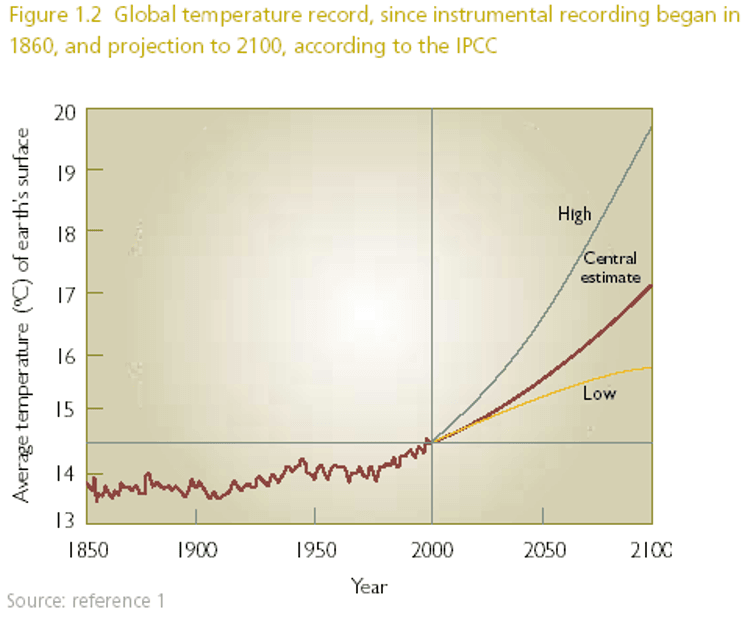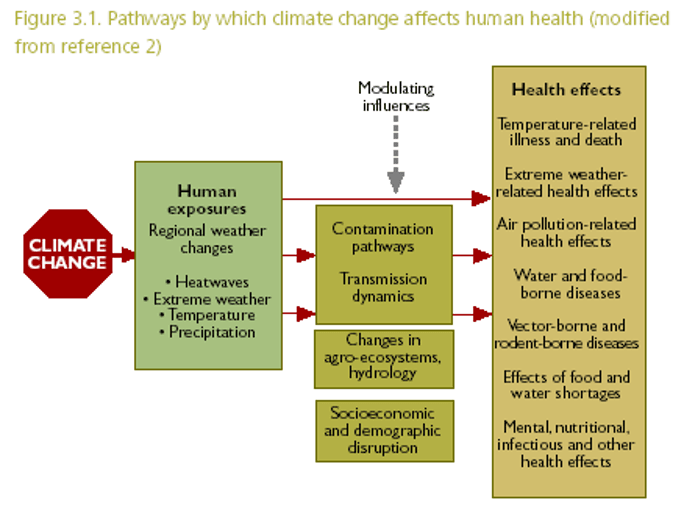So much for tariff talks with China. It’s humbling to note how Mother Nature can upend our entire world view in so short a time. The tragic crisis affecting millions across China and threatening the rest of the world, should act as a long overdue wakeup call to mankind about the healthcare cost of climate change.
Coronavirus is only the latest, but definitely not the last virus in a long and notorious line of viruses and bacteria, from HIV-AIDS in the latter half of the 20th century to Ebola, to SARs, to Swine flu, to Bird flu, to whatever comes next, to hit mankind in the last four or five decades. Each one a little worse and a little more contagious than the one before, almost all attributable to human contact with animal borne microbes that managed to cross the species barrier and infect humans. One is compelled to ask why so many in so small a time frame. It can’t just be a coincidence that these pathogens affect us just as climate change gathers momentum.
Q4 2019 hedge fund letters, conferences and more
Most people tend to focus on pollution, degrading land use, flooding, change in weather patterns, disappearing species, degrading of water resources while discussing climate change, all of which are critically important no doubt. However most of this is macro. Even pollution, unless you live in cities with truly awful air quality, isn’t something you notice until you smell it. The rest is macro, and most of us don’t really get to see the change happening in front of us unless someone points it out, in some ways its almost academic, something to like or post an angry emoji about on FB, we give it a courtesy nod and then climb back into our gas guzzlers and head off to wherever.
It takes a coronavirus to bring it to our immediate attention, to get us questioning the authorities.
Climate change does not just affect humans; animals see their habitats shrink and/or change, which in turn force them to migrate to new areas. In a lot of cases these animals are forced into closer contact with humans.
A lot of these wild animals carry a variety of pathogens whose survival depends on adapting to the new environment and the new dominant species in the vicinity – Humans.
While the larger animals may not be able to blend into cities, smaller wildlife like monkeys, rabbits, birds, jackals, foxes, and other sundry rodents find it a convivial place to live, given that scavenging food is easy.
The situation is exacerbated by the increasing number of humans choosing to live in cities; estimates suggest that over 55% of the global population now live in cities, up from under 35% in the 1950s.
Wuhan, ground zero for the virus, has a population estimated at just about 11 million, and it’s only the 6th largest city in China. It probably won’t even make it to the top 20 densest cities in the world.
The packed nature of modern existence makes it that much easier for these pathogens to achieve a wider spread and eventually find a human host that is hospitable. It also helps in the asymptomatic human to human transfer of these viruses before symptoms develop. Ease of travel and longer hours spent indoors in a closed environment, as compared to 50 years ago just makes it that much easier for an epidemic to become a pandemic.
This is just the Tip of the Iceberg
Apart from the above, warming temperatures mean longer transmission periods for tropical diseases and infections, not to mention a wider geographical spread as traditionally immune areas like Europe warm up. Vector borne diseases like Zika virus, Chikungunya, Dengue etc. which were confined to tropical areas will spread to populations’ ill-equipped to handle them.
According to the world Health Organization (WHO), mankind is facing an unprecedented healthcare crisis, the magnitude of which cannot be estimated with any certitude. All indications are that we cannot over-estimate the impact of the impending healthcare crisis facing mankind.
There are different figures being bandied about regarding the current rise in global temperatures, and the future rise in the same. According to WHO, the projection is:
According to experts the rapid increase in temperature now exceeds the upper limit of natural (historical) variability and climatologists assess that most of that recent increase is due to human influence.
According to the UNs Inter-governmental Panel on Climate Change (IPCC) we face a whole range of health hazards attributable to climate change, and the worst part is that due to the number of variables involved it is all but impossible to estimate the final cost of climate change based health challenges.
Pollution by itself, air, water and food, is looking to become a giant killer. Respiratory issues caused by particulate matter has already manifested itself in the developing world, cities like Beijing and New Delhi regularly come into the news for their notoriously bad air every winter.
Land degradation is expected to hit food production, and changing weather patterns are also affecting life cycles of insects, as evidenced by the latest plague of locusts of almost biblical proportions effecting large swathes of Africa and Asia.
Be a Part of the Solution
As I’ve said before, investing in combating climate change does not have to be a zero sum game. As investors we can and must aid this battle by investing in key technologies that could help mitigate or prevent the catastrophe facing our species.
Read:
- Western Medicine by Eastern Wealth: Chinese VCs Invest in US Healthcare Start-ups
- Investing in Climate Change; Profiting the Right Way
Podcast:
- Electric Royalties - Royalty Financing the Electric Revolution
- Wealth Management for Expats in China
Watch:
- Five Investment Friday
In the present scenario, myriad companies in the healthcare niche including drug developers are putting together plans on how to best prepare for the impending healthcare crisis. Drug manufactures are getting ready for an increase in the demand for vaccines and other drugs to combat such diseases. Researchers estimate that there will be an increase in demand for vaccines by as much as $200 billion by 2050, that’s an increase of close to 40% from current sales of close to $500 billion. Much of this demand is expected to be from the west as tropical diseases take hold due to the warming landmass.
Research in climate change based diseases is also gathering pace as these companies gear up for faster turn-around times from when a potential pandemic is identified to when a vaccine/drug to combat it is developed and mass manufactured.
Some of the companies identified in the report include GSK, Pfizer, Moderna, Merck, Janssen & Janssen, and Sanofi, all of whom are established players in the domain with the wherewithal to invest significant capital in developing lifesaving drugs.
It isn’t just drug research or manufacturing that is attracting attention due to the upside potential of returns, but also the logistical aspects of its delivery. There are a host of smaller companies and start-ups in the healthcare space being championed by fund managers that could use fresh capital and prove to be successful investments. So look for funds that could help mitigate the effects of climate change.
Climate change is shaping up to be the great battle of our generation, and it’s time we stand up and take ownership of our responsibilities in this war.
You can get the latest updates by following me on any of the SM below:
Twitter: https://twitter.com/g_silberman
LinkedIn: https://www.linkedin.com/in/greg-silberman-cfa-caia-ca-sa-16969643
Facebook: https://www.facebook.com/watch/acgimllc/
YouTube: https://www.youtube.com/channel/UCrF6BSWe2NkjpIqLVWe3geQ/featured
Thank you for reading my post. I regularly write about private market opportunities and trends. If you would like to read my regular posts feel free to also connect on LinkedIn, Twitter or via Atlanta Capital Group Investment Management.
Greg Silberman is the Chief Investment Officer of ACG Investment Management LLC (“ACGIM”). ACGIM specializes in creating custom private market solutions for RIA/Family Office clients.
This material is not intended to be relied upon as a forecast, research or investment advice, and is not a recommendation, offer or solicitation to buy or sell any securities or to adopt any investment strategy. The views and strategies described may not be suitable for all investors. It is not possible to directly invest in an index. An index fund is a type of mutual fund with a portfolio constructed to match or track the components of an index. Past performance is no guarantee of future results. Investments will fluctuate and when redeemed may be worth more or less than when originally invested. Advisory Services offered through ACG Investment Management, LLC. ACG Investment Management is an affiliate of ACG Wealth Inc.
Graphs: https://www.who.int/globalchange/summary/en/
Source:
- https://www.bbc.com/news/health-51237225
- http://worldpopulationreview.com/world-cities/wuhan-population/
- https://www.europeanpharmaceuticalreview.com/article/95845/climate-change-how-pharma-will-profit-from-a-warming-planet/
- https://www.thedailybeast.com/get-ready-for-more-coronavirus-nightmares-thanks-to-climate-change
- https://www.scientificamerican.com/article/unprecedented-locust-invasion-approaches-full-blown-crisis/








